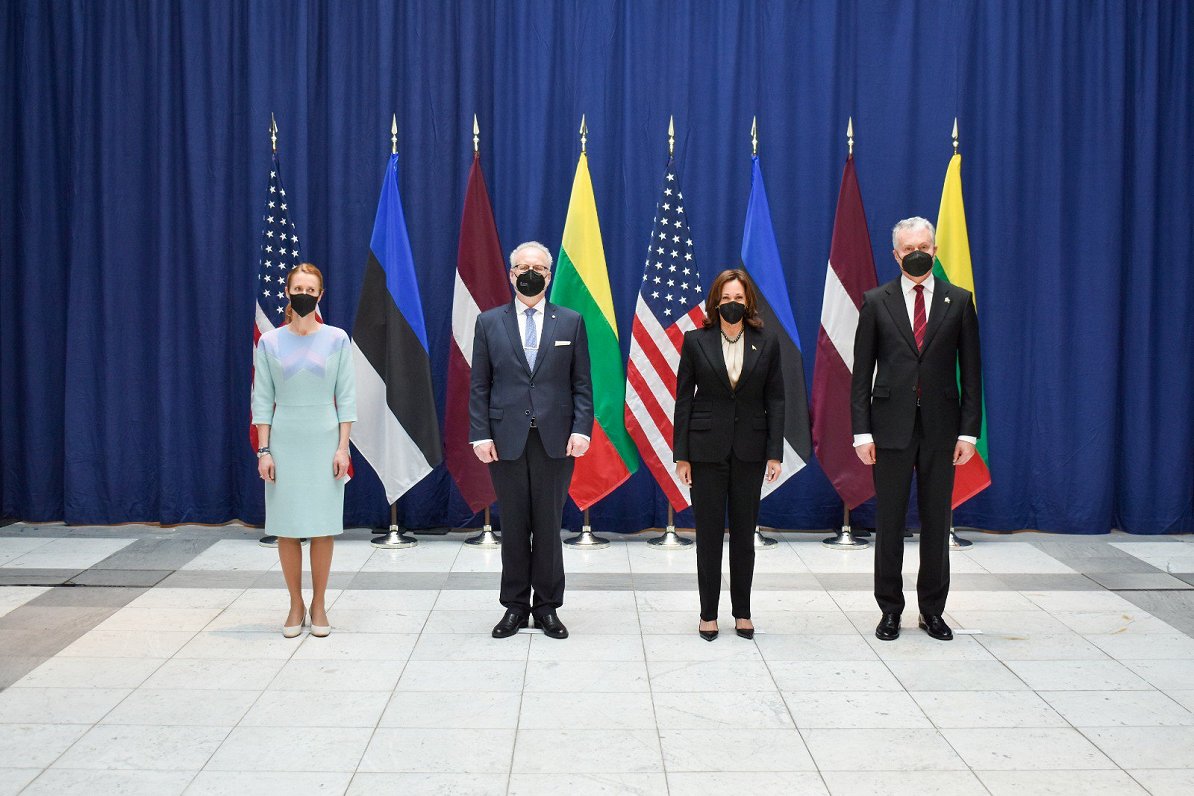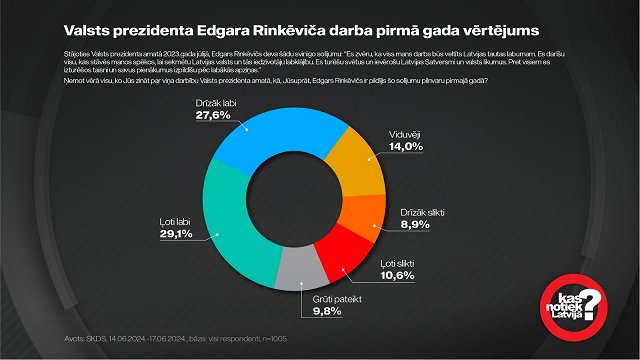A readout of the meeting released by the White House said:
"Vice President Kamala Harris met today with President Egils Levits of Latvia, President Gitanas Nauseda of Lithuania, and Prime Minister Kaja Kallas of Estonia in Munich, Germany. This meeting was part of the Biden-Harris Administration’s extensive engagement with Allies on a unified approach to Russia’s aggressive actions. The leaders discussed their readiness for a swift Transatlantic response should Russia further invade Ukraine, including through adjustments to U.S. and NATO force posture, and implementation of financial sanctions and export controls.
"Vice President Harris emphasized that our commitment to Article 5 of the NATO Treaty is ironclad and that we stand united with our NATO Allies in opposing Russian aggression. The leaders also discussed efforts to strengthen NATO’s deterrence and collective defense."
Vice President Harris and Baltic leaders discussed their readiness for a swift response should Russia further invade Ukraine, including through adjustments to U.S. and NATO force posture. @VP emphasized that 🇺🇸 commitment to #NATO Article 5 is ironclad. https://t.co/6dljLbbNau
— U.S. Embassy Riga (@USEmbassyRiga) February 18, 2022
At the start of the meeting, President Levits said: "I would like to say that the aggression of Russia — and this is a Russian case, not a Ukrainian case — aggression of Russia against Ukraine is not only against Ukraine, but also against Europe, against the democracy, against the West et al.
"Because Russia is challenged by democracy, it is difficult for Russia to see that there could be a democratic Ukraine because it could have some repercussions in Russia.
I would say that our task is to avoid the hot phase of the confrontation. And it is only possible if the answer of the West is united and very strong, and so that the cost-benefit calculation for Russia is negative and clearly negative.
"And what does this mean? I think this answer is our response consists of four elements. The first element is sanctions — very, very serious sanctions. And President Biden said already to President Putin this already a few times.
"This is the second: military and economically and financial support of Ukraine so that Ukrainians can defend themselves. Also, this is a second element — very important.
"The third element is the strengthening of the military defense capacity in the eastern flank, especially in Baltics, especially in Poland. And the co- — bilateral cooperation with U.S. in this respect is already going on, but we should strengthen that.
"And the fourth element is a dialogue. It’s a dialogue in order to keeps the channel for Russia open to go back to, I would say, normal international behavior.
"So — and all the four elements together, this should be a very strong answer to Russia so that we can say that avoiding of the hot phase of confrontation depends from us — from the West, from NATO."
Despite Levits' hope that a "hot phase" in the confrontation between Ukraine and Russia could be avoided, Latvian Foreign Minister Edgars Rinkēvičs was meanwhile warning that events in Ukraine seemed to be getting hotter every minute with the launch of an apparent "false flag operation" by Russian forces looking to create a bogus pretext for invasion.
Seems that false flag operation has been launched by #Russia in #Donbass #Ukraine, propaganda channels in Russia getting hysteric. I commend #Ukraine for the restraint but it is time for the West to help Ukraine to counter Russian aggression not only in words but also in deeds
— Edgars Rinkēvičs (@edgarsrinkevics) February 18, 2022





























